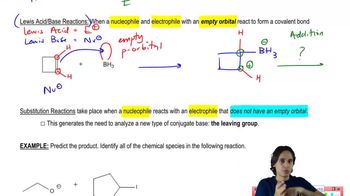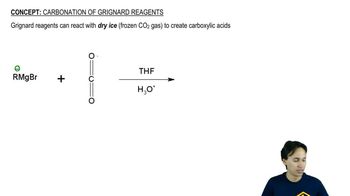Phosgene is the acid chloride of carbonic acid. Although phosgene was used as a war gas in World War I, it is now used as a reagent for the synthesis of many useful products. Phosgene reacts like other acid chlorides, but it can react twice.
(b) Predict the products formed when phosgene reacts with 1 equivalent of methanol, followed by 1 equivalent of aniline.






